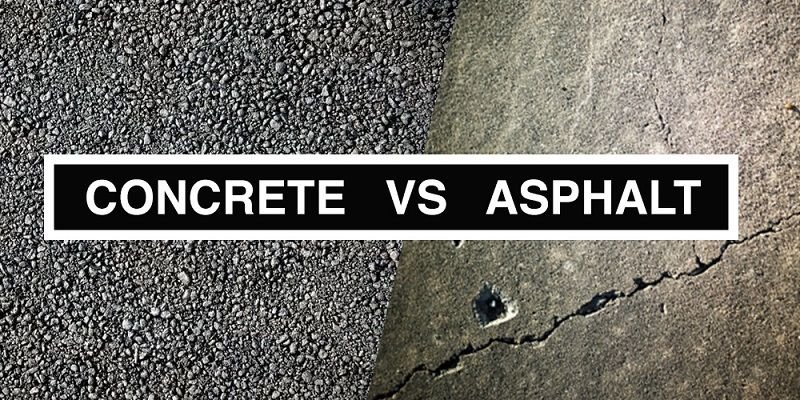When it comes to paving roads, driveways, and parking lots, the choice between Concrete vs Asphalt is a significant consideration. While both materials serve the purpose of providing durable surfaces for vehicular and pedestrian traffic, concrete offers distinct advantages that make it a preferred option in many applications.
Durability and Longevity
Concrete is renowned for its exceptional durability and longevity. Unlike asphalt, which requires regular maintenance and resurfacing every few years, concrete pavements can last significantly longer with minimal upkeep. Properly constructed concrete surfaces can endure heavy traffic and weather extremes without deteriorating as quickly as asphalt.
Strength and Stability
One of the primary advantages of concrete over asphalt is its superior strength and stability. Concrete pavements are rigid and less prone to rutting, deformation, and pothole formation, which are common issues with asphalt surfaces, especially in high-traffic areas. This rigidity also enhances load-bearing capacity, making concrete ideal for heavy-duty applications.
Maintenance and Lifecycle Costs
While concrete typically has a higher initial cost compared to asphalt, its lower long-term maintenance requirements often result in cost savings over the pavement’s lifecycle. Concrete’s durability reduces the frequency of repairs and resurfacing, resulting in fewer disruptions and expenses associated with ongoing maintenance.
Environmental Considerations
Concrete offers environmental benefits compared to asphalt. It has a lighter color that reflects more sunlight, reducing the urban heat island effect. Additionally, concrete is recyclable and can incorporate recycled materials, making it a more sustainable choice in construction projects.
Aesthetic Appeal and Design Flexibility
Concrete pavements offer greater design flexibility and aesthetic appeal. They can be customized with various finishes, colors, and textures to complement architectural styles or enhance urban landscapes. Decorative concrete techniques, such as stamping and staining, provide options for creating visually appealing surfaces that are not possible with traditional asphalt.
Resilience to Weather and Climate
Concrete is less susceptible to temperature fluctuations and weather conditions compared to asphalt. It performs well in extreme heat and cold, maintaining its structural integrity without softening or becoming brittle. This resilience makes concrete pavements suitable for diverse climates and ensures consistent performance over time.
Conclusion
In the debate between Concrete vs Asphalt for paving applications, concrete stands out for its durability, strength, low maintenance requirements, and environmental advantages. While initial costs may be higher, the long-term benefits of concrete in terms of longevity, performance, and sustainability make it a preferred choice for many infrastructure projects. Whether for roads, driveways, or parking lots, concrete’s resilience and aesthetic versatility contribute to its appeal as a superior paving material.







